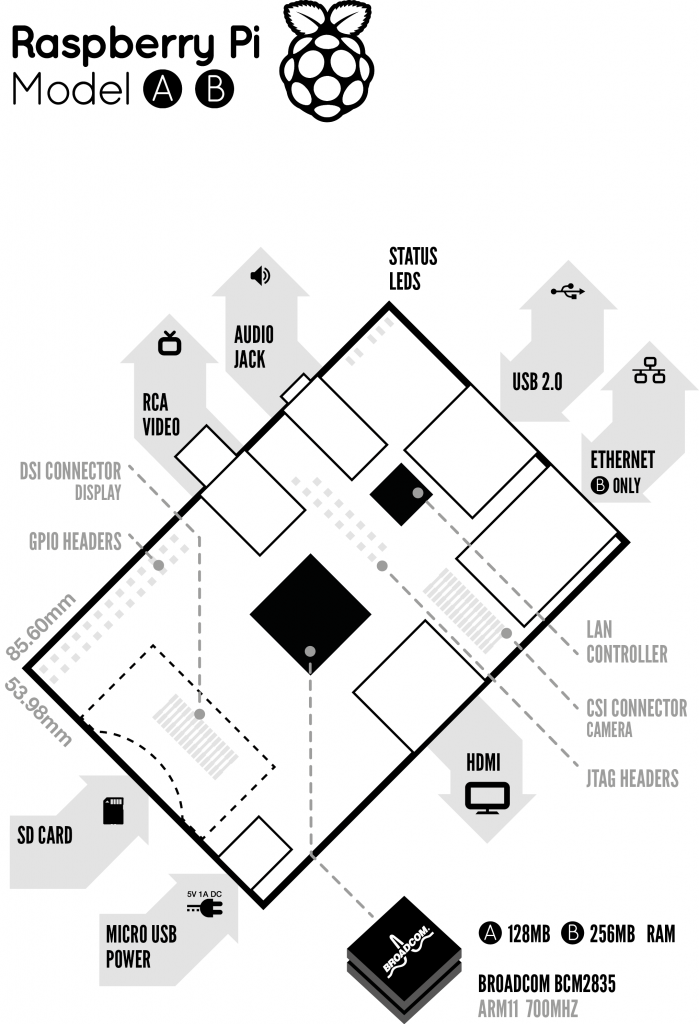
For the computer, see: http://www.raspberrypi.org/faqs
For the chess program, see me later for a port of CookieCat to the 700 MHz ARM processor used by the Raspberry Pi.
Moderators: hgm, Rebel, chrisw




The machine still needs a power source, a keyboard, a mouse, and some cables. A Compact Flash card is needed, as I don't think one is supplied.The Ethernet version of the board including doubled RAM (256 MB) is an extra US$10. So maybe US$75 total for a well equipped unit.mclane wrote:i like the idea to build an extremly cheap and primitive computer for the people all over the world that needs only a TV set.
i am sure it will be easy to port a few strong chess programs on it to bring chess into the world too...

rest assured there will be a DoubleCheck for Raspberry as soon as I can get hold of a GCC port for it. And I'm sure if it's powered by GNU/Linux that there must be onesje wrote:The machine still needs a power source, a keyboard, a mouse, and some cables. A Compact Flash card is needed, as I don't think one is supplied.The Ethernet version of the board including doubled RAM (256 MB) is an extra US$10. So maybe US$75 total for a well equipped unit.mclane wrote:i like the idea to build an extremly cheap and primitive computer for the people all over the world that needs only a TV set.
i am sure it will be easy to port a few strong chess programs on it to bring chess into the world too...
The doubled RAM is a good idea, as I'll guess that the Linux kernel and common daemons will eat about 64 MB. Virtual memory swapping to a CF card is something to be avoided were possible.
A headless version with only cabled Ethernet would be slightly cheaper, perhaps about US$50. Twenty or so Raspberry Pi would make a nice Beowulf cluster with 14 GHz of processor bandwidth for US$1,000.
However, existing programs that are x86 or X64 dependent won't run on an ARM, so they will need some modifications.
It would be very nice to see chess program authors post versions of their programs marked "Raspberry Pi compatible" or even better, "Raspberry Pi Beowulf compatible".

I believe that the current gcc on just about any desktop/notebook can cross compile to ARM11.lucasart wrote:rest assured there will be a DoubleCheck for Raspberry as soon as I can get hold of a GCC port for it. And I'm sure if it's powered by GNU/Linux that there must be one



